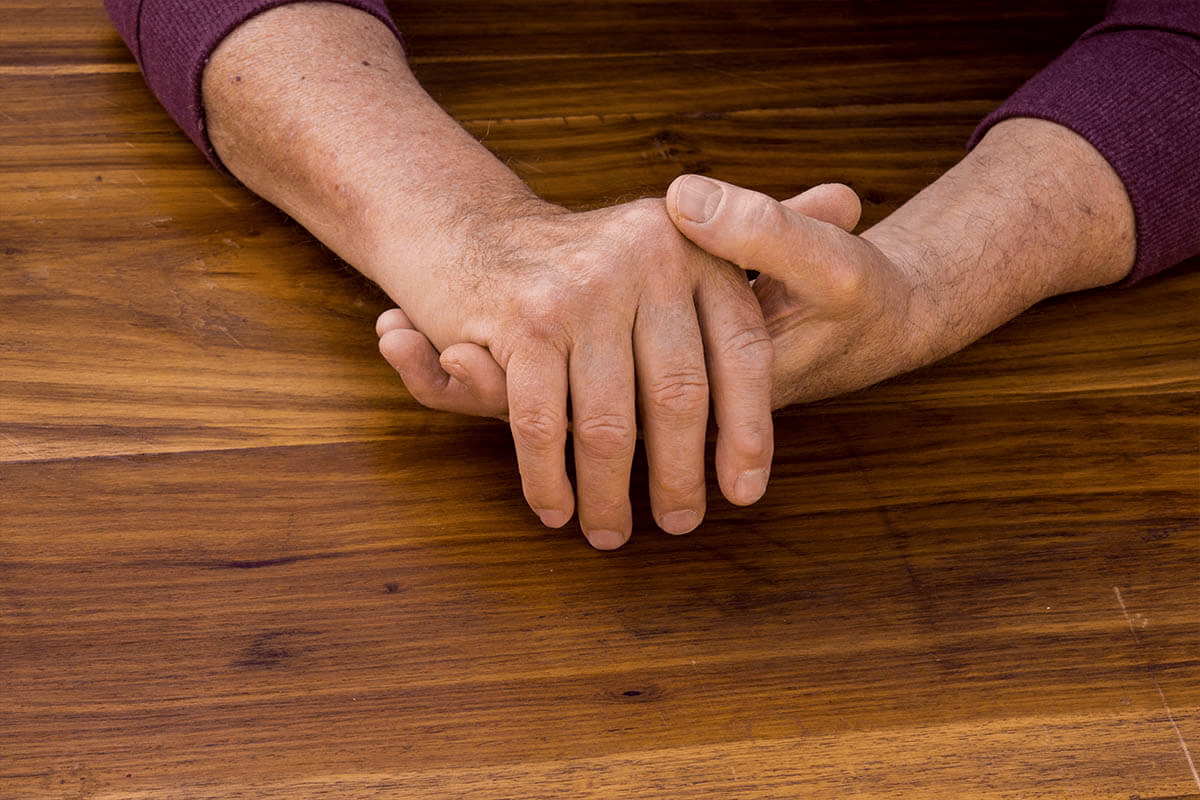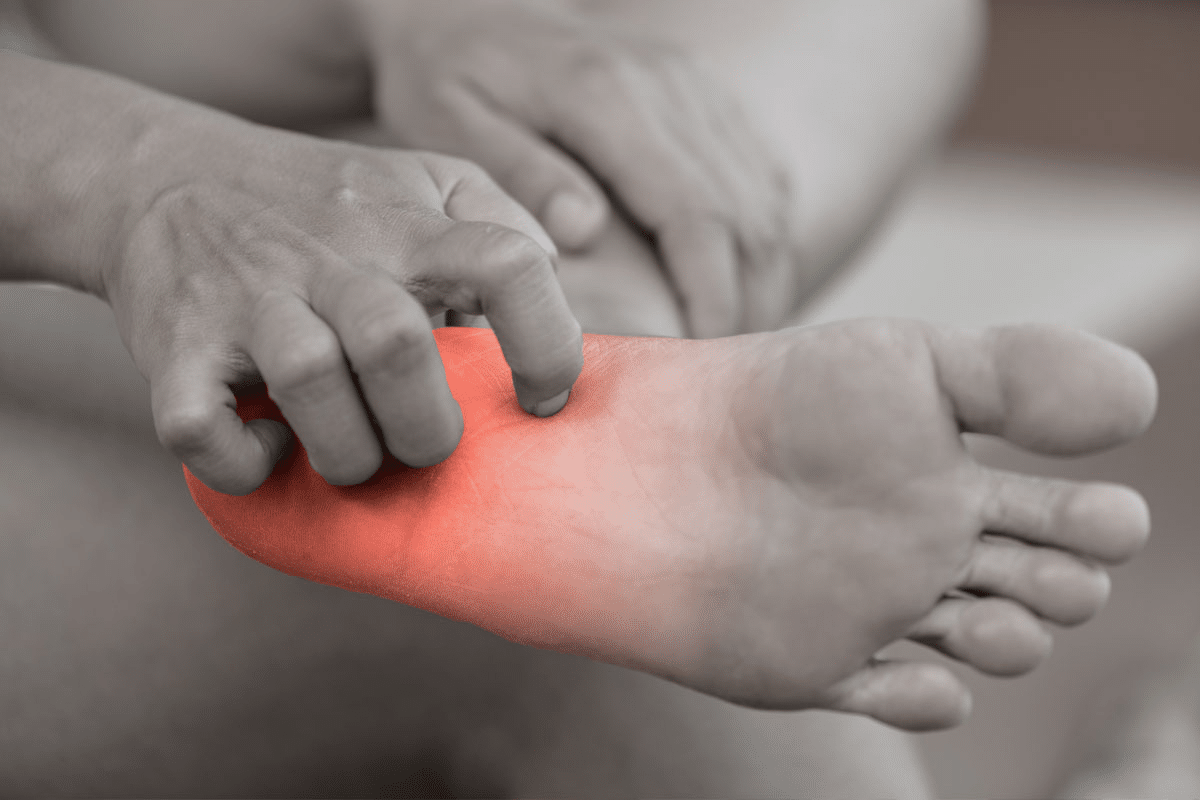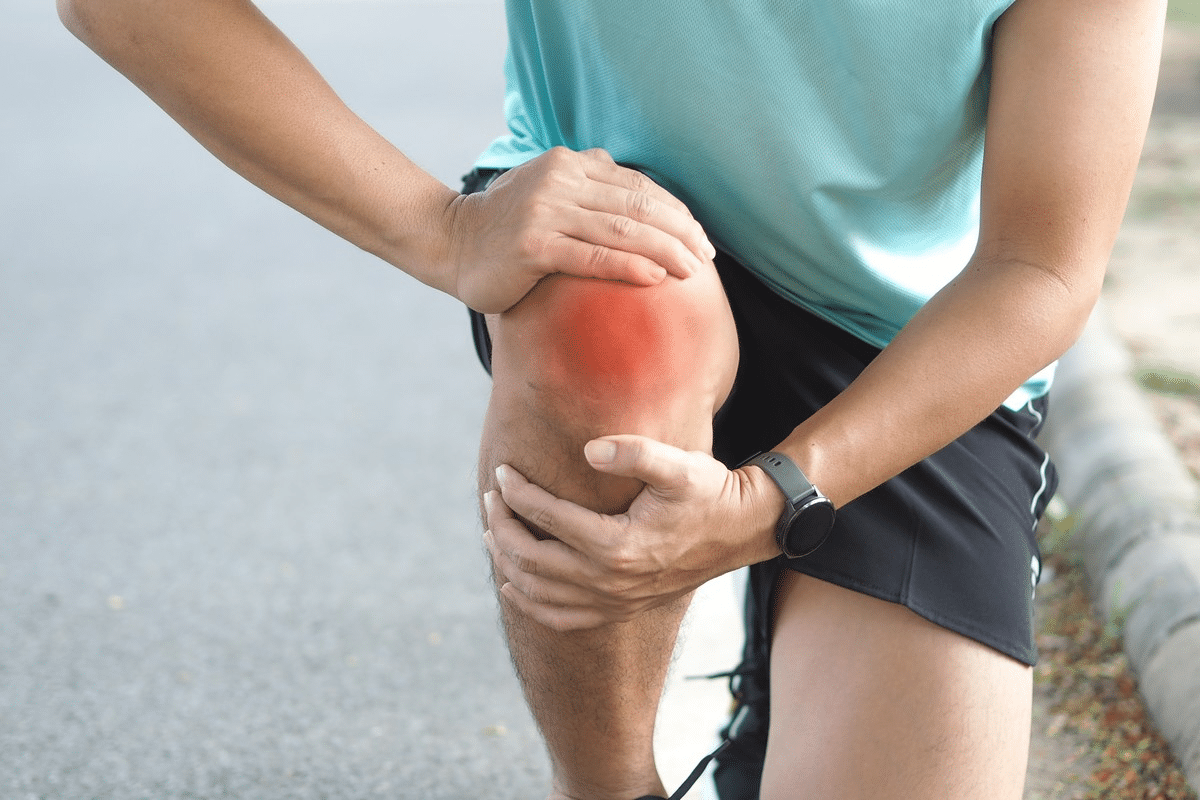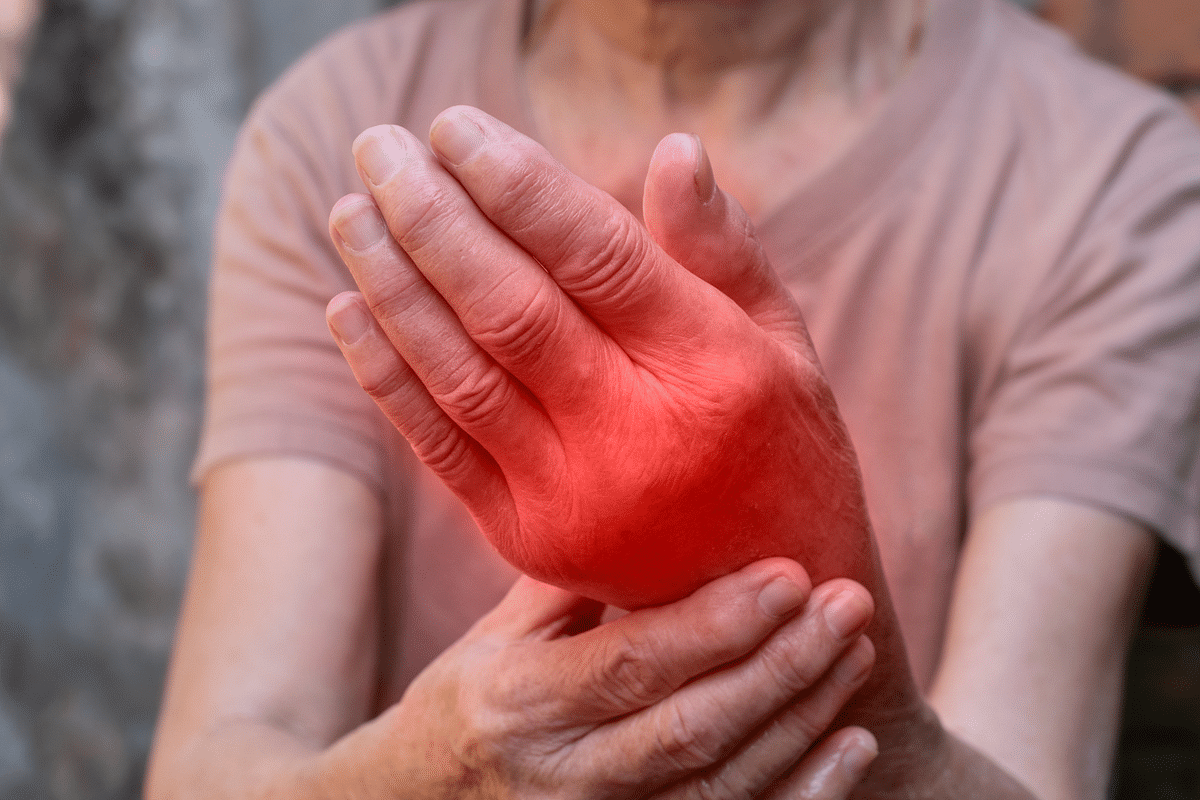
High blood pressure, or hypertension, is a common condition. It affects nearly half of adults in many developed countries. At LivHospital, we focus on finding the main causes of this issue.
Discover what are the 10 causes of high blood pressure and how to prevent them.
Several factors can increase your risk of developing high blood pressure. These include family history, age, and not being active enough. Also, eating poorly and drinking too much alcohol can raise your risk. Knowing these risk factors is key to managing your blood pressure well.
We aim to provide top-notch healthcare, including support for international patients. By learning about the causes of hypertension, you can start taking steps to keep your blood pressure healthy.
Key Takeaways
- Family history and age are significant risk factors for high blood pressure.
- A lack of physical activity and poor diet can contribute to hypertension.
- Excessive alcohol consumption is a key factor in raising blood pressure.
- Managing stress and maintaining a healthy lifestyle can help mitigate the risk.
- Understanding the causes of high blood pressure is essential for effective management.
Understanding High Blood Pressure and Its Prevalence
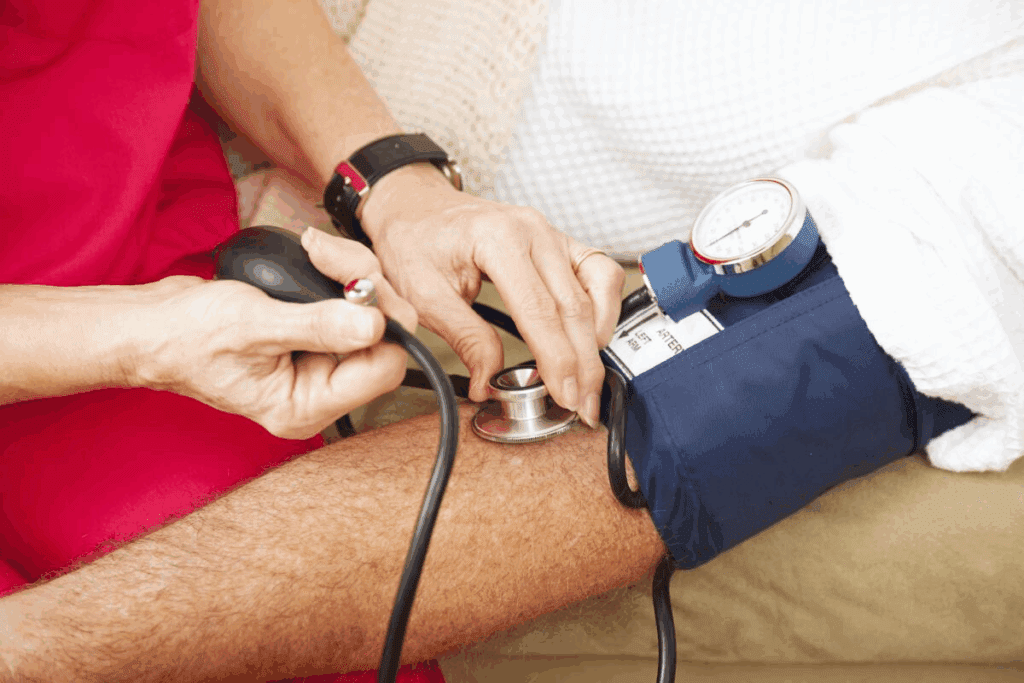
It’s important to know how common high blood pressure is. This condition, also known as hypertension, affects millions globally. It often goes unnoticed until it causes serious health problems.
What Is Hypertension and How Is It Measured?
Hypertension is when blood pressure stays too high, usually over 130/80 mmHg. Doctors check blood pressure during yearly visits and other times. High blood pressure is confirmed if the numbers are high at two visits.
Doctors use a sphygmomanometer to measure blood pressure. This test is simple and can be done in a doctor’s office or at home.
The Global Impact of High Blood Pressure
High blood pressure is a big health problem worldwide. It leads to heart disease, kidney disease, and stroke. The World Health Organization (WHO) says hypertension is a top cause of death globally.
Some groups face higher risks due to diet, lifestyle, and genetics. Knowing these factors helps tackle the problem.
Why Identifying Causes Matters for Prevention
Finding out why high blood pressure happens is key to preventing it. Things like age, obesity, lack of exercise, and diet can raise your risk.
By knowing these causes, people can lower their risk. They can make lifestyle changes or get medical help when needed.
Age: Why Blood Pressure Typically Rises as We Get Older

As we age, the risk of high blood pressure grows. Almost 9 out of 10 Americans face this issue. Our bodies undergo changes that can affect our blood pressure.
How Aging Affects Blood Vessel Elasticity
Our blood vessels become stiffer with age. They can’t handle blood pressure changes as well. This stiffness is a big reason for higher blood pressure in older people.
Key Changes with Aging:
- Increased stiffness of the arterial walls
- Reduced ability of blood vessels to dilate
- Potential buildup of plaque in the arteries (atherosclerosis)
Age-Related Risk Factors for Hypertension
Several factors linked to aging increase the risk of high blood pressure. Knowing these factors helps in preventing and managing the condition.
| Risk Factor | Description | Impact on Blood Pressure |
| Aging Blood Vessels | Loss of elasticity and increased stiffness | Increased blood pressure |
| Lifestyle Changes | Reduced physical activity, weight gain | Contributes to higher blood pressure |
| Other Health Conditions | Diabetes, kidney disease | Can complicate blood pressure management |
Managing Blood Pressure in Older Adults
Managing blood pressure in older adults requires lifestyle changes and sometimes medical help. Regular monitoring of blood pressure is key. A healthy lifestyle with a balanced diet, exercise, and stress management is essential.
Older adults should also watch out for orthostatic hypotension. This is when blood pressure drops suddenly when standing. Managing this might need changes in medication or other steps.
Understanding how age affects blood pressure and taking action can help older adults manage their blood pressure. This can lower the risk of heart problems.
Obesity and Weight Management
Being overweight or obese can raise blood pressure. This makes managing weight key to preventing high blood pressure. When we’re overweight, our heart works harder. This adds stress to the heart and blood vessels.
The Physiological Connection Between Weight and Blood Pressure
The link between weight and blood pressure is complex. Excess body fat, mainly around the belly, can cause insulin resistance. This means our cells don’t use insulin well, leading to high blood sugar and high blood pressure.
Being overweight can also change our kidneys, causing them to hold more sodium. This increases blood volume and raises blood pressure. The heart has to work harder, which can lead to high blood pressure.
How Fat Distribution Affects Hypertension Risk
The amount and where fat is stored matter for blood pressure risk. Visceral fat, around organs in the belly, is very harmful. This fat is active and can affect blood pressure.
- Visceral fat causes inflammation and oxidative stress. These can harm blood vessels and raise blood pressure.
- People with central obesity face a higher risk of high blood pressure, even with a normal BMI.
Weight Loss Strategies That Help Lower Blood Pressure
Weight loss can greatly help manage blood pressure. Changing diet, being more active, and making lifestyle changes can lead to weight loss. Some good ways include:
- Eating a balanced diet with lots of fruits, veggies, whole grains, and lean proteins.
- Doing at least 150 minutes of physical activity each week, like walking, cycling, or swimming.
- Controlling portions and eating mindfully to cut calories.
- Reducing sitting time and moving more throughout the day.
Understanding the link between obesity and high blood pressure is key. By managing weight effectively, we can lower our risk of hypertension. This improves our heart health overall.
Genetic Factors: What Are the 10 Causes of High Blood Pressure Related to Heredity
Studies show that genes play a big role in high blood pressure. Knowing about these genes helps us understand our risk better. It also helps us manage it well.
Family History and Hypertension Risk
Having a family history of high blood pressure increases your risk. If your parents or siblings have it, you might too. This is because you could have inherited genes that lead to high blood pressure.
Key factors to consider:
- Parental history of hypertension
- Siblings with high blood pressure
- Genetic predisposition to related conditions like kidney disease or diabetes
Specific Genetic Markers Associated with High Blood Pressure
Many genetic markers are linked to a higher risk of high blood pressure. These markers can influence how your body handles sodium, reacts to stress, and regulates the renin-angiotensin system.
Knowing about these markers helps in creating personalized treatment plans.
Managing Genetic Predisposition to Hypertension
Even though you can’t change your genes, there are ways to manage your risk. These include:
- Maintaining a healthy weight
- Engaging in regular physical activity
- Following a balanced diet low in sodium and rich in fruits and vegetables
- Limiting alcohol consumption and avoiding smoking
- Regular monitoring of blood pressure
By making these lifestyle changes, you can lower your risk of high blood pressure, even with a genetic predisposition.
Dietary Sodium: The Salt Connection
Dietary sodium is key to managing blood pressure. It’s important to know how it affects our blood pressure. We’ll look at how sodium impacts blood pressure, find hidden sodium sources, and share ways to cut down on sodium.
Impact on Blood Pressure Regulation
Sodium intake affects blood pressure. Too much sodium makes our bodies hold onto fluid. This extra fluid increases blood pressure as the heart works harder.
Also, too much sodium makes blood vessels stiffen. This stiffening raises blood pressure even more.
Key Mechanisms:
- Fluid retention due to high sodium intake
- Vascular stiffening and its impact on blood pressure
- Increased cardiac workload
Hidden Sources of Sodium
Most sodium comes from processed and restaurant foods, not from salt we add. Foods like bread, processed meats, and canned goods are high in sodium. Knowing these sources helps manage sodium intake.
Strategies for Reducing Sodium Intake
Lowering sodium intake is possible with the right strategies. Reading food labels, choosing low-sodium foods, and cooking at home with fresh ingredients help. Using herbs and spices instead of salt also makes a big difference.
| Strategy | Description | Benefit |
| Read Food Labels | Check nutrition labels for sodium content | Make informed choices |
| Choose Low-Sodium Options | Opt for low-sodium versions of foods | Reduce overall sodium intake |
| Cook at Home | Prepare meals using fresh ingredients | Control sodium content |
Understanding sodium’s effect on blood pressure and using these strategies can help manage hypertension. This improves our overall heart health.
Physical Inactivity and Sedentary Lifestyle
Regular physical activity is key for healthy blood pressure. Exercise strengthens the heart and blood vessels. It also boosts overall heart health.
Cardiovascular Effects of Regular Exercise
Exercise is great for the heart. It makes the heart muscle stronger. This improves blood pumping.
It also makes blood vessels more flexible. This helps them adjust better to body needs. Plus, it helps keep weight healthy, lowering obesity-related high blood pressure.
“Exercise is a key part of managing high blood pressure,” health guidelines say. “It can lower blood pressure and cut down on heart disease risk.”
How Sedentary Behavior Contributes to Hypertension
A sedentary lifestyle harms blood pressure control. It leads to more activity in the nervous system. This causes blood vessels to narrow and blood pressure to rise.
Not moving much can also lead to weight gain and insulin resistance. Both are risk factors for high blood pressure.
Exercise Recommendations for Blood Pressure Management
To manage blood pressure with exercise, aim for 150 minutes of moderate-intensity aerobic activity weekly. Or do 75 minutes of vigorous activity. Also, do resistance training two or more times a week.
Choose exercises that are fun and fit your fitness level. This helps you stick with it long-term.
By being active and cutting down on sitting, we can lower high blood pressure risk. We also improve our heart health.
Alcohol and Caffeine Consumption
Drinking alcohol and caffeine can affect your blood pressure. It’s important to know how they impact your health to manage high blood pressure well.
The Dose-Dependent Relationship Between Alcohol and Blood Pressure
Drinking alcohol can have both good and bad effects on your heart and blood vessels. Drinking up to one drink a day for women and two for men is usually okay. But drinking more can raise your blood pressure because it affects your blood vessels and heart.
Studies show that too much drinking can lead to high blood pressure. This is because it harms your blood vessels and heart. So, it’s key to watch how much alcohol you drink to avoid high blood pressure.
How Caffeine Temporarily Raises Blood Pressure
Caffeine can make your blood pressure go up, but this usually doesn’t last long. It works by making your heart beat faster and your blood vessels narrower, which raises your blood pressure.
Even though scientists are studying caffeine’s long-term effects, it’s clear that people react differently. Some might see a bigger jump in their blood pressure than others.
Guidelines for Moderate Consumption
To keep your blood pressure in check, drink alcohol and caffeine in moderation. Stick to the daily limits for alcohol. For caffeine, aim for no more than 400 milligrams, or about 3-4 cups of coffee, a day.
Pay attention to how your body reacts to these substances and adjust your intake as needed. Talking to a healthcare provider about your drinking and caffeine habits can also help you keep your blood pressure healthy.
Chronic Stress and Mental Health
Mental health and heart health are closely connected. Chronic stress is a big risk for high blood pressure. When we’re stressed, our body’s “fight or flight” response kicks in. This releases hormones like adrenaline and cortisol.
Physiological Stress Responses That Affect Blood Pressure
Stress makes our heart rate and blood pressure go up. Our body is getting ready to face the situation or run away. Long-term stress can keep blood pressure high. Stress affects blood pressure through many hormonal and neural actions.
Stress activates the HPA axis, releasing cortisol and other stress hormones. Cortisol makes blood vessels narrow and heart rate go up, affecting blood pressure. Stress can also lead to unhealthy behaviors like overeating or drinking more.
Long-Term Effects of Stress on Cardiovascular Health
Chronic stress has big effects on heart health. Stress hormones can cause blood vessel inflammation. This can lead to high blood pressure and heart disease. Stress can also make heart conditions worse by increasing heart work and oxygen need.
People under chronic stress are more likely to have heart attacks and strokes. The connection between stress and heart health shows why managing stress is key.
Stress Management Techniques for Hypertension Prevention
Managing stress is vital for preventing high blood pressure. Mindfulness, deep breathing, and yoga can reduce stress. Regular exercise is also great for stress relief and lowering blood pressure. Eating well, sleeping enough, and enjoying hobbies can also help.
It’s important to know when you’re stressed and get help. Mental health experts can offer strategies and therapies. They help manage stress and protect blood pressure.
Tobacco Use and Smoking
Using tobacco products, like smoking, is closely tied to high blood pressure. It’s a big risk for heart diseases. We’ll look at how smoking affects blood pressure and why quitting is good.
Immediate Effects of Nicotine on Blood Pressure
Nicotine, the main active part in tobacco, quickly raises blood pressure. It does this by making the adrenal glands release adrenaline. This can cause a big jump in blood pressure, which is bad for the heart.
Long-Term Vascular Damage from Smoking
Smoking harms the heart and blood vessels in many ways. It damages the inner lining of blood vessels, making them more likely to block. This can lead to a buildup of plaque in arteries, raising blood pressure. Smokers are at a much higher risk of high blood pressure than non-smokers.
Benefits of Smoking Cessation for Hypertension
Stopping smoking is key to managing and preventing high blood pressure. Quitting smoking helps the heart and blood vessels in many ways. It lowers blood pressure right away and reduces heart disease and stroke risks over time. There are many programs and support systems to help quit smoking.
Knowing the dangers of tobacco and smoking helps people take steps to avoid high blood pressure. Quitting smoking is a big step towards better heart health.
Medical Conditions and Medications
It’s important to know how medical conditions and medications affect blood pressure. Some health issues and medicines can really change blood pressure levels. It’s key to find and fix these problems.
Chronic Kidney Disease and Hypertension
Chronic kidney disease (CKD) can make blood pressure go up. The kidneys help control blood pressure by balancing sodium and hormones. Damage to the kidneys can raise blood pressure.
CKD and high blood pressure are linked in a cycle. CKD can cause high blood pressure, and high blood pressure can make CKD worse. Keeping blood pressure in check is vital to slow down kidney disease.
| Stage of CKD | Blood Pressure Target | Management Strategies |
| 1-3 | <130/80 mmHg | Lifestyle modifications, monitoring |
| 4-5 | <130/80 mmHg | Aggressive blood pressure management, possible dialysis |
Sleep Apnea’s Impact on Blood Pressure
Sleep apnea can also affect blood pressure. It’s when breathing stops or gets shallow during sleep. This disrupts sleep and lowers blood oxygen.
Sleep apnea leads to hypoxia, which increases the nervous system’s activity. This can raise blood pressure. Treating sleep apnea can help control blood pressure.
Medications That Can Raise Blood Pressure
Some medicines can raise blood pressure as a side effect. These include NSAIDs, certain antidepressants, and corticosteroids. It’s important to tell doctors about all medicines taken.
- NSAIDs can cause sodium retention, leading to increased blood pressure.
- Certain antidepressants can affect blood pressure regulation.
- Corticosteroids can cause fluid retention and increase blood pressure.
Women-Specific Causes: Pregnancy and Menopause
Women face unique blood pressure challenges, like during pregnancy and menopause. Pregnancy-induced hypertension is a big concern for both mom and baby.
Menopause brings hormonal changes that can affect blood pressure. Some women may see their blood pressure go up because of these changes.
It’s key to watch and manage blood pressure in these life stages. Doctors can help with lifestyle changes and medication if needed.
Knowing about these medical conditions and medicines helps us manage high blood pressure better. This reduces the risk of serious problems.
Conclusion: Taking Control of Your Blood Pressure
Knowing what affects blood pressure is key to managing it well. We’ve looked at many factors, like age, obesity, and genetics. We also talked about diet, exercise, stress, and smoking.
Managing blood pressure means living a healthy lifestyle. This includes eating right, staying active, managing stress, and not smoking. Making smart choices can lower the risk of heart disease and keep you healthy.
To control your blood pressure, work with your doctor to create a plan. This might mean checking your blood pressure often, eating less salt, and exercising more. Understanding and acting on what raises blood pressure helps us manage it better.
FAQ
What are the main factors that contribute to high blood pressure?
High blood pressure comes from many things. These include age, being overweight, and genes. Also, eating too much salt, not moving enough, drinking too much alcohol, and stress play a part. Smoking and some health issues can also raise blood pressure.
How does aging affect blood pressure?
As we get older, our blood vessels lose their stretchiness. This can make blood pressure go up. Older age also changes how our kidneys and other organs work, adding to high blood pressure.
Can being overweight cause high blood pressure?
Yes, being overweight or obese is a big risk for high blood pressure. Extra fat, mainly around the belly, can cause insulin resistance and inflammation. These changes can make blood pressure go up.
How does sodium intake affect blood pressure?
Eating too much salt can raise blood pressure in some people. It makes the body hold onto more water. This increases blood volume and pressure on blood vessels.
Can regular exercise help lower blood pressure?
Yes, exercising regularly can lower blood pressure and prevent high blood pressure. It also boosts heart health and helps with weight control.
How does stress impact blood pressure?
Stress can lead to high blood pressure by releasing stress hormones. These hormones, like cortisol and adrenaline, increase heart rate and blood pressure.
Is there a link between smoking and high blood pressure?
Yes, smoking is a big risk for high blood pressure. Nicotine in tobacco smoke can quickly raise blood pressure. Long-term smoking damages blood vessels and raises blood pressure.
Can certain medical conditions cause high blood pressure?
Yes, some health issues like kidney disease, sleep apnea, and adrenal gland disorders can cause high blood pressure. Some medicines, like antidepressants and NSAIDs, can also increase blood pressure.
Are there any women-specific causes of high blood pressure?
Yes, women can get high blood pressure due to pregnancy or menopause. Hormonal changes during these times can affect blood pressure.
Can genetic factors play a role in high blood pressure?
Yes, genes can play a part in high blood pressure. If your family has a history of hypertension, you’re more likely to get it too.
What lifestyle changes can help manage high blood pressure?
To manage high blood pressure, live a healthy lifestyle. Eat a balanced diet with less salt, exercise regularly, and keep a healthy weight. Also, manage stress, drink less alcohol, and quit smoking.
References:
National Center for Biotechnology Information. (2025). 10 Causes of High Blood Pressure Key Factors. Retrieved from https://www.ncbi.nlm.nih.gov/books/NBK539859/



